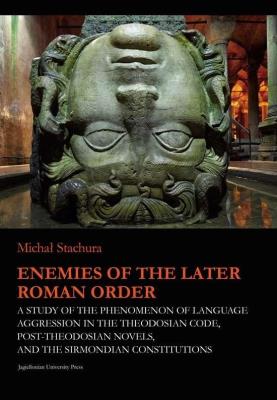The book deals with the presence of language aggression in the postclassical Roman law, in common opinion one of the characteristic features of the decadence in the dawn of the Byzantine culture. In his analysis of normative sources, the author makes use of an original research method whereby he concentrates on seeking out particular ideologically charged terms in the relevant articles of law, in order to analyze, throughout each selected corpus of legal documents, the context in which they appear and, on that basis, to determine their specific semantic fields. Notably, in his thorough analysis of the statements which are definitely negative in relation to those who are regarded as enemies of the state, he proceeds to examine such expressions semasiologically, as based on the traditional forms of invective present in Greek and Roman literature. The book consists of three parts: the first consider the methodological assumptions of the work, the second is devoted to an analysis of the negatively marked vocabulary as found in the relevant constitutions, the third identifies the groups of enemies of the Roman order and presents conclusions resulting from the authors analysis of the quantities of terms and expressions of invective in the relevant sources. The author attempts to determine semantic fields of the invective-forming expressions on the basis of a wide range of reference material, at times reaching as far as several centuries back (from the perspective of the Late Antique period). The book is meant to scholars and students of postclassical law, historians, and philologists.



